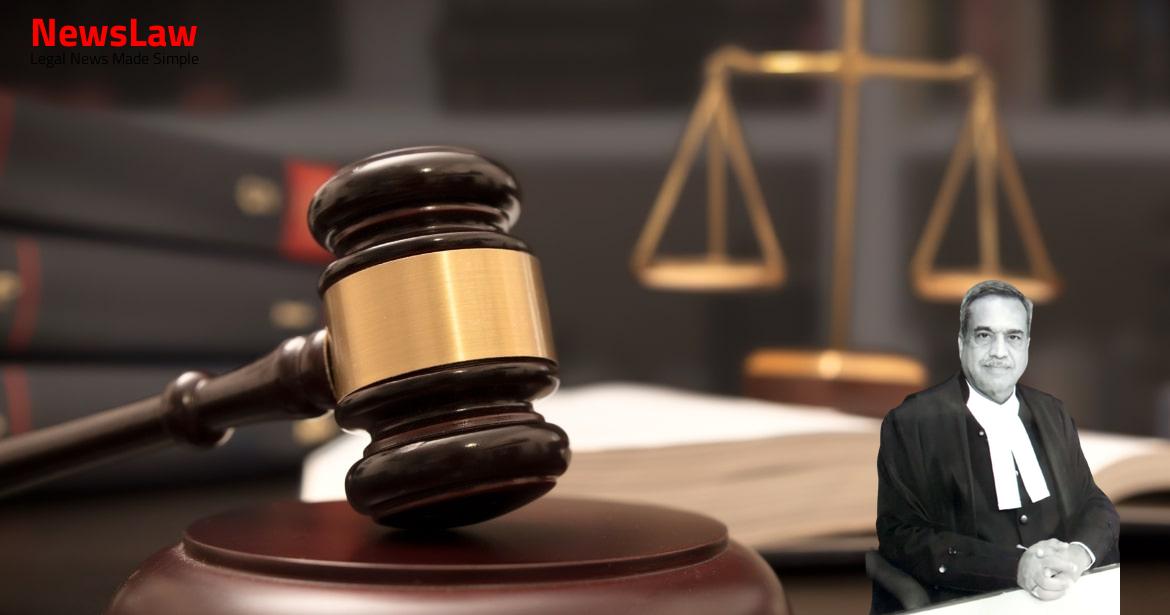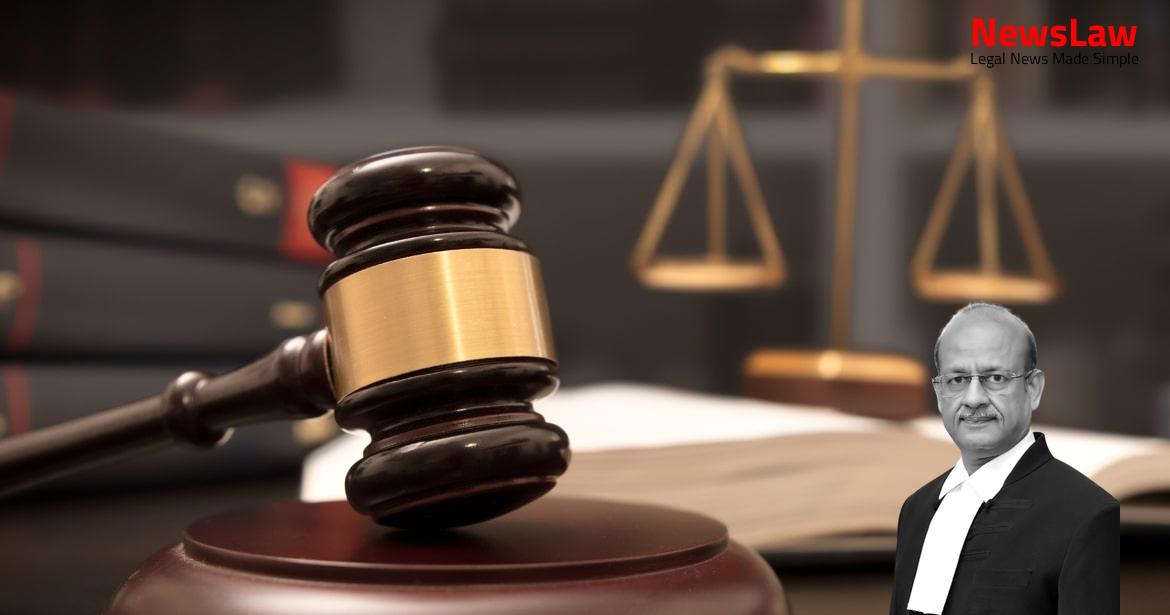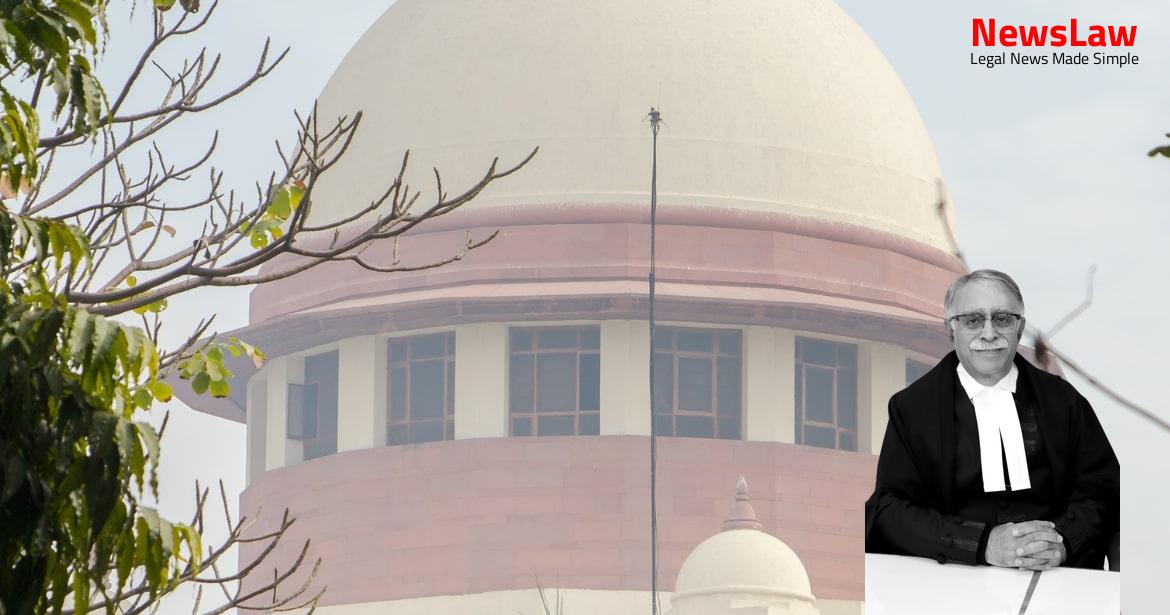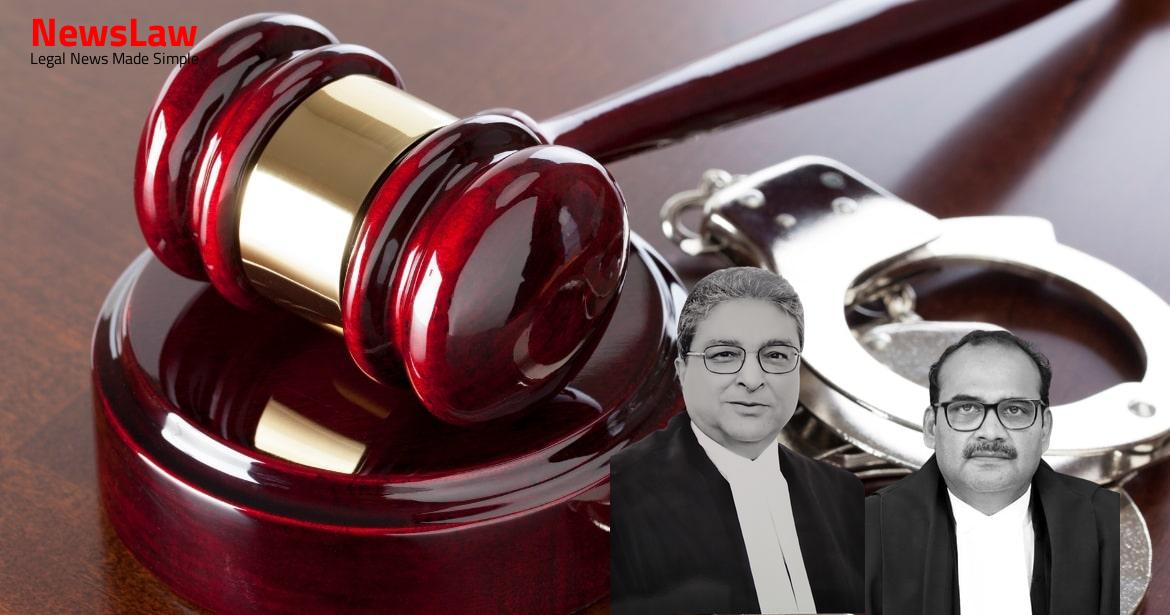Delve into the intricate legal analysis provided by the court regarding joint liability under Section 138 of the Negotiable Instruments Act. The case delves into the specific conditions required for prosecution under Section 138 and clarifies the limitations of applying Section 141 of the Act to individual liabilities. The court’s detailed analysis challenges the prosecution’s case and highlights important nuances in the interpretation of the law.
Facts
- High Court refused to quash the criminal complaint filed against the appellant.
- Appellant appealed against the High Court’s decision.
- Complaint filed for offences under Section 138 r/w Section 141 of the NI Act.
- Complaint numbered as C.C. No 2802/SS/2016.
- The original complainant assisted accused Nos. 1 and 2 in legal proceedings.
- A professional bill was raised for the legal work done.
- A post-dated cheque of Rs.8,62,000 was given by accused No. 1 but later dishonored due to insufficient funds.
- Accused No. 2 filed a Criminal Writ Petition to quash the complaint against her.
- The complainant served a legal notice for payment, which was ignored by the accused.
- A complaint was filed against both accused for the offence under Section 138 of the NI Act.
Also Read: Electoral Malpractices in Mayor Election
Arguments
- The appellant argues that the dishonored cheque was issued by her husband, not by her, and the account in question was not a joint account.
- The appellant asserts that she was neither the signatory to the cheque nor was the cheque drawn from her bank account, hence she cannot be prosecuted under Section 138 of the NI Act.
- It is contended that the requirements of Section 138 of the NI Act are not met, and therefore, the criminal complaint against the appellant should have been quashed.
- The appellant’s counsel argues that Section 141 of the NI Act should not apply in this case as the cheque was issued by a private individual, not a company.
- The counsel further argues that the liability for the professional bill was joint between the accused, as the complainant represented both of them.
- The original complainant insists that both accused persons are jointly liable for the offense under Section 138 r/w Section 141 of the NI Act.
- Learned counsel representing the State supported the impugned judgment and order by the High Court.
- The cheque was issued to discharge legal liability of both the accused
- The High Court justified in rejecting the plea to quash the complaint.
Also Read: Balancing Power and Transparency: Electoral Bonds Struck Down, Disclosure Mandated
Analysis
- In order for a person to be prosecuted under Section 138 of the NI Act, specific conditions need to be met.
- These include the cheque being drawn and signed by the person, on an account maintained by them, for payment of a debt or liability.
- Section 138 does not address joint liability, and only the signatory of the cheque on their own account can be prosecuted.
- The appellant here, not being the signatory nor the account holder, cannot be prosecuted under Section 138.
- Section 141 of the NI Act pertains to company offences and cannot be applied to individuals.
- The term ‘company’ in this context does not encompass individuals with joint liabilities.
- Therefore, the appellant cannot be prosecuted using Section 141 as it is not applicable to individual liabilities.
- The criminal complaint against the appellant for the offence under Section 138 r/w Section 141 of the NI Act is considered an abuse of process of law.
- The complaint should be quashed and set aside as per the law.
- The High Court’s failure to quash the complaint was a grave error.
- The appellant cannot be convicted under Section 141 of the NI Act.
Also Read: Recall of Resolution Plan Approval: Legal Analysis
Decision
- The impugned judgment and order dated 21.08.2019 passed by the High Court in Criminal Writ Petition No 2595 of 2019 refusing to quash the criminal complaint against the appellant for the offence punishable under Section 138 read with Section 141 of the NI Act is quashed and set aside.
- The complaint case pending in the Court of the learned Metropolitan Magistrate filed by respondent No. 1 – original complainant being C.C. No 2802/SS/2016 is quashed and set aside.
- The appeal is allowed accordingly.
- In view of the above and for the reasons stated above, the present appeal succeeds.
Case Title: ALKA KHANDU AVHAD Vs. AMAR SYAMPRASAD MISHRA (2021 INSC 164)
Case Number: Crl.A. No.-000258-000258 / 2021



